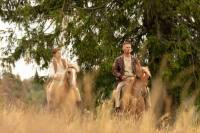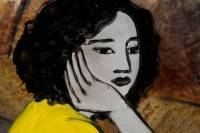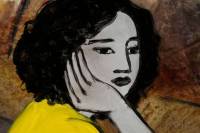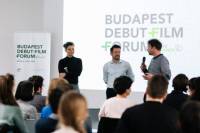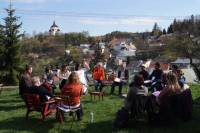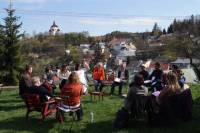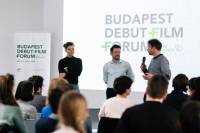New Horizons Association and Kids Kino International Film Festival invite producers to submit their projects to pitchings at Kids Kino Industry. International co-production forum will take place from 3 to 5 October in Warsaw as part of Kids Kino IFF (29 September - 8 October). The submission deadline is 12 May.
PRODUCTION: Romanian Director/Screenwriter Marian Crisan in Postproduction with Warboy
Romania 08-02-2023BUCHAREST: The Romanian director/scriptwriter/producer Marian Crișan is currently in postproduction with his fifth feature film Warboy / Sluga, a drama set in 1944. The film is a Romanian/Moldavian coproduction.
CZECH ANIMATION HAS TWO NOMINEES FOR THE TITLE OF THE BEST EUROPEAN CHILDREN’S FILM OF THE YEAR
Press releases 07-02-2023European Children’s Film Association (ECFA) connecting 150 members from 41 countries worldwide announced the nominations in three categories - feature film, documentary and short film. The association members are now voting for the winners of the best European children’s film of 2022. Czech animation was praised for Lucie Sunkova´s short film Suzie in the Garden and a co-production feature film The Crossing. Both films have been made under MAUR film production. The winners of each category will be announced on the 18th of February at the Berlinale International Film Festival.
Films from FNE Partner Countries Nominated for European Children’s Film Association Awards
Region 07-02-2023BERLIN: Six films produced or coproduced by FNE partner countries are among the titles nominated as the Best European Children’s Film of 2022 in three categories: feature film, documentary and short film.
BUDAPEST: Debut films and series' projects at an early stage of development can apply to the 5th edition of the Budapest Debut Film Forum, which will be held within the Friss Hús Budapest International Short Film Festival from 27 to 31 March 2023. The deadline for applications is 20 February 2023.
The intensive rough cut workshop dok.incubator opens applications for its regional programs and calls for Czech and Slovak filmmakers. Submit your film until February 13 and work with international tutors on editing and dramaturgy and discuss your distribution strategy with festival and sales representatives!
PRAGUE: Czech and Slovak filmmakers are invited to apply to the intensive rough cut workshop dok.incubator till 13 February 2023.
Friss Hús Budapest International Short Film Festival will organize its Budapest Debut Film Forum for the fifth time in March
VALLETTA: The TV franchise Malta’s Got Talent will benefit from the 40% cash rebate on eligible production expenses from the Malta Film Commission.
BERLIN: Europa Distribution will organise the panel “Surfing the Waves. Audience Building in a New Period of Changes” at the Berlinale European Film Market on 19 February 2023.


